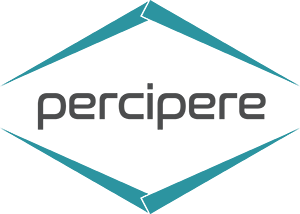Enterprise Resource Planning (ERP) systems have conventionally been thought to be the reserved turf of large corporations with deep pockets. Indeed, despite their proven benefits, the significant upfront investments needed for on-premises infrastructure deployments and maintenance kept ERPs beyond the reach of small and mid-tier organizations for many years.
However, the advent of the cloud and the mainstreaming of SaaS delivery models, among many things, brought a transformational shift in the availability and consumption of cutting-edge enterprise management capabilities.
How have the Cloud Based ERP Solutions brought about an element of equity? If you are a business looking for an ERP for the Mid-market or intend to optimize your ERP expenses, we implore you to read till the end to find out.
What are Cloud Based ERP Solutions?
Unlike an on-premises ERP deployed in your own data center, Cloud Based ERP Solutions are hosted and managed by your ERP vendor, allowing you to consume capabilities with a simple subscription-based model. Your vendor is responsible for maintaining the entire solution landscape, including the application, operating systems, data storage infrastructure, regular security, and feature updates. Understandably, this lowers the Total Cost of Ownership and disengages a significant share of your workforce to focus on your core business.
Cloud Based ERP Solutions are always online, and your employees need an active internet connection and a web browser to access the system environment. Moreover, most Cloud Based ERP Solutions today is compatible with iOS and Android devices and support integration with a wide range of business applications to simplify customer-focussed enterprise management. With Cloud Based ERP Solutions, your teams can access and visualize financial data, sales figures, workforce management tools, supply chain status, and much more on the go, helping them to be productive like never before.
Further, Cloud Based ERP Solutions are highly scalable and built for growth, making them a favorite for ambitious mid-market organizations. Instead of undertaking complex capability expansion projects, Cloud Based ERP Solutions are modular, allowing you to ramp up or down as per your business needs. For instance, SAP Business ByDesign, the leading cloud ERP for the Mid-market, comes packed with prebuilt processes and is localized for 140+ countries.
No wonder 2021 research by the Panorama Consulting Group found that 90% of the organizations are opting for Cloud-Based ERP Solutions and prefer a SaaS model over a hosted approach.
What are the different types of Cloud Based ERP Solutions?
It must be noted that all Cloud Based ERP Solutions are not made equal. Therefore, it remains crucial to understand the following subtle difference in deployment models to get the most out of your investment:
Multi-tenant SaaS: A single version of the ERP application is made available for all subscribers or customers. However, while multiple organizations share a single landscape, the business data owned by each are well-compartmentalized and protected against unauthorized access.
Single-tenant SaaS: Dedicated applications and servers are made available for a customer
Public Cloud: Here, multiple customers share cloud computing services by public cloud vendors like AWS, Microsoft Azure, and Google Cloud Platform.
Private Cloud: The usage of cloud computing services is reserved for a specific customer.
Hybrid Cloud: A hybrid cloud architecture combines the capabilities of the applications deployed on-premises with services available in the public or private cloud environment to deliver unique operational leverage.
What Are the Benefits of Cloud Based ERP Solutions?
The usage of Cloud Based ERP Solutions offers outstanding technical and business benefits that, when combined, can put your organization at a strategic advantage. Such benefits include but are not limited to:
Cost Optimization: One of the most publicized benefits of Cloud Based ERP Solutions is exceptionally lower upfront and operating costs compared to on-premises ERP solutions. It allows even cash-strapped organizations to avail advanced enterprise management capabilities without breaking the bank. It is possible as while the cloud ERP solution vendor undertakes all the capital investments; you can access the services with a monthly subscription or a pay-per-usage model, optimizing your expenses.
Faster implementation: ERP implementation is a complex undertaking affecting almost every aspect of your business, and it is not uncommon to overshoot timelines, adding to the implementation costs. However, since Cloud Based ERP Solutions bypass the need for elaborate infrastructure setup and maintenance team building, you can use such products almost right out of the box. In fact, Cloud Based ERP Solutions like Percipere’s Insta-FinPro are built around SAP Business By Design, the cloud ERP for the Mid-market. It allows you to go live within just six weeks!
Customizations: Every business is unique and therefore requires a certain degree of customization into the ERP system to operate effectively. However, with op-premise systems, such custom builds are not carried over to future versions of the application. With Cloud Based ERP Solutions, you can easily avoid this hassle, smoothly plugging modular capabilities into your ERP landscape as and when required.
Assured security: In today’s business environment, with its ever-growing compliance requirements, it is understandable for you to be apprehensive about the security of your data. However, it should be noted that reputed Cloud Based ERP Solutions vendors like SAP tend to provide a magnitude of security and compliance that few companies today can afford otherwise. Also, besides protecting your data with end-to-end encryption and enterprise-grade security, putting your data on the cloud also ensures redundancy and, therefore, better disaster recovery.
Easy enhancement: Cloud Based ERP Solutions can readily communicate with your other business systems like CMS, HRMS, QRMS, and plant management systems, allowing you to avail a much more integrated enterprise technology landscape. Offering a single source of truth equips your process owners with better visibility and reliable insights for making impactful decisions.
Final Note
The benefits of Cloud Based ERP Solutions are indeed undeniable. However, much depends on how comprehensively your unique business requirements are discovered and a Cloud ERP is implemented to address them. At Percipere, we possess the technical understanding of top-end Cloud Based ERP Solutions and the unmatched industry knowledge to maximize their benefits. Get in touch with one of our certified SAP consultants to find out what makes us the most trusted Cloud Based ERP Solutions implementation partner for our global clientele.
Author: Percipere





